|
We have three practitioners at WNT who use acupuncture in their treatments. They each have distinct approaches so to help you decide who would best fit your needs we have asked them some questions about how they work and who they work with. There are 3 acupuncturists at WNT, please can you share a bit about your individual approach or style of acupuncture? 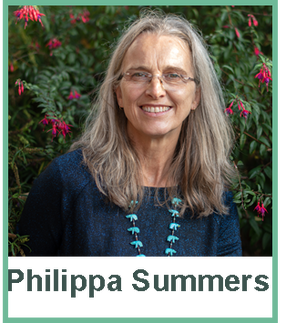 I practise East Asian Medicine (EAM), an umbrella term for many different styles which include my initial training in Traditional Chinese Medicine and 5 element acupuncture with subsequent courses in other styles including Master Tung, Channel Palpation and ear acupuncture, each with their own strengths. Training in TuiNa massage really changed how I work, and it was during that time that I started incorporating more hands on approaches to diagnosis and treatment. Broadly, EAM can be used to focus internally on physiology in a holistic way looking at how the different systems interact and impact on a physical, mental and emotional level. It can also be used to look at the body in a more structural way, focussed on the musculoskeletal skeletal system, but still taking into account the background physiology that nourishes the muscles, bones, tendons, ligaments and joints. My training particularly in fertility and musculoskeletal acupuncture has incorporated more western concepts and diagnostic approaches, but EAM is at the heart of how I work. 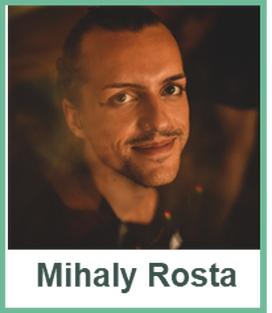 My approach is to deepen and utilise the mind-body connection which is done by bringing my decade long Tai chi and meditation practice into the treatment room. Whether it is acupuncture or martial arts, we always aim to create a good flow in the body and mind, as stagnation or being stuck is seen as the root of suffering. So my treatments are often described as a calming flow between Acupuncture, massage and gentle guidance. Thus working on both the Body, Mind and Energy (QI) of the person.  I practice what is known as Dry Needling or Medical Acupuncture (DN/MA). This is an approach used to treat musculoskeletal problems. When I think it may be beneficial to use needling during a massage session I will discuss with the client first and use it in combination with soft tissue work (massage). I will massage the area first to detect where the needles are required and usually leave them in place for 20 minutes or longer if needed. I use DN/MA in approximately 50% of my treatments. I am foremost a massage therapist and I am aware that when people book a massage, that is what they want. I also respect that some clients have a fear of needles although I am happy to say I have introduced DN/MA to a number of clients over the years who have been converted when they feel the benefits of a needle versus my elbow! What kind of clients do you mostly treat?  I treat a wide variety of conditions but since qualifying most of my additional training has focussed on four main areas which in turn determines the type of clients I mostly treat:
So, I see a lot of women for gynae issues like painful periods, PMS, menopausal symptoms, through pregnancy right up to the birth and beyond and a very wide range of fertility issues. This may be support conceiving naturally or while going through ART procedures like IVF and FET, often with background diagnoses like endometriosis or PCOS. I also treat a lot of people with headaches, migraines, musculoskeletal conditions like sciatica, back and knee pain, often chronic recurrent conditions. I tend to refer athletes and sporty people with more acute conditions to Tessa. I have built up good peer support and referral networks in the key areas on which I focus and that is so important in getting help with more challenging cases and signposting clients in the right direction if I can’t help them.  Although I see people with a wide range of health complaints, the most frequent conditions that I treat (and have success with) are anxiety, stress, nerve related pain, sinusitis and digestive issues. I am also happy to say that I see a fairly equal amount of man and women (and everyone in-between). I am really happy to see that men reach out and attend to their mental health needs. 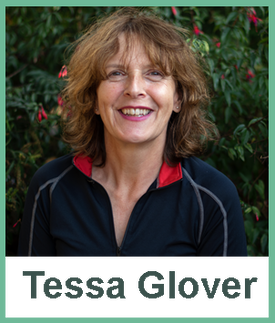 I use DN/MA on all types of clients. From those with migraines or neck/shoulder/back pain to muscle tears. From young semi-professional footballers with injuries to more mature clients to assist with pain relief and rehabilitation from many conditions including Osteoarthrititis and hip/knee replacements. Again I only treat with needles if the client is happy to. What do you enjoy about using acupuncture to work with clients?  I love how very different we all are and feeling a connection with people. Everyone brings their own personalities, strengths and struggles, and it feels vitally important to get a sense of each person and what treatment means to them in order to treat effectively. That spark of connection is so important whatever people are coming for. There is invariably an emotional element to some degree, sometimes a key focus, sometimes more in the background. Acupuncture with its holistic approach and focus on mind, body and spirit offers a versatile framework. It is so good at helping to achieve a sense of peace in our often hectic city lives, where that reset into more 'rest and digest' is a key element for healing. Whether people come with pain, with mental health struggles, wanting to start or grow a family or for another combination of reasons acupuncture offers a way to assess and address the physical and emotional together, and also to regulate the many complex interactions within our body as a whole. I like that approach, it makes sense to me to treat the body as the unified, interactive, self-regulating system and gently nudge it towards a more healthy balance.  I really enjoy seeing the change that I help to facilitate in my clients. It's amazing how people can leave behind pain and find more comfort within themselves. Love seeing people's attitudes and priorities change about their own health as that is what makes the "healing" sustainable. Oh and I must say that I love treating new things that I perhaps have never seen in person before. It's fascinating to see how the two of us can unravel what is the ongoing behind the labels of disease.  I enjoy seeing the positive results of DN/MA when used on my clients. It also gives me the freedom to multitask if there are a number of areas of the body I need to work on in one treatment. For example I can use needles in the neck and shoulders while using massage on the legs. DN/MA doesn't work for everyone but I've had some amazing results and responses from clients. I used one needle on a hamstring tear in one session and the client had no further pain. My favourite response to the suggestion of using DN/MA being "ooh needles, yeah. I can feel it whooshing through my shoulders, it's fantastic. Love it!" You can book online with Philippa, Mihaly (aka Mike) or Tessa or contact them directly if you would like any further information. NB: Sessions with Philippa or Mihaly begin with a 90minute session to allow for a longer consultation (sometimes on zoom) while with Tessa acupuncture needling is something that is incorporated into her regular sports massage treatments.
1 Comment
Acupuncturist Philippa Summers suggests some local classes suitable from pregnancy to preschool and highlights which of the WNT team can support you around this busy, nurturing stage of life. As the nights begin to draw in and we withdraw inside a little more it can be more challenging to plan your days with a baby or toddler, and to look after your own well-being and fitness. Well, the good news is there are a wealth of opportunities out there, activities you can do with your baby or children and classes for yourself with your baby or at those precious moments you have to yourself. Just getting out and meeting up with other mums and dads can make a whole world of difference as you adjust to parenthood. Maybe you are looking for something specific or just want to browse and see what’s out there.
I came across a website, Happity, that makes searching for classes and events in your area a doddle. It covers everything from pregnancy through the baby and toddler years to age 5. Prices vary, some are free and some low cost from as little as £2. Among them are:
I know from my own experience and that of probably every parent I know just how important these groups are through this phase of life. If you are struggling with post-natal depression Happity also have a dedicated area of their website which includes links to useful resources. Check out their blog, too. I’d like to make a special mention for Gather-ed as they offer something a little different and I think much needed. They offer 1:1 support, workshops and group gatherings with experienced facilitators including midwives - ‘gently facilitated discussions on themes and topics relevant to parenthood…and are a space for honest, authentic conversations’. Wednesday mornings at Knowles in West Norwood, other classes in East Dulwich. Pregnancy Treatments at West Norwood Therapies Finally, we can help to support you throughout your pregnancy with our treatments at West Norwood Therapies:
Acupuncture: Some women choose to have regular acupuncture to support them throughout their pregnancy, but commonly it will be to help with a particular issue. In the early stages of pregnancy women often seek help for morning sickness and at the latter stages for breech presentation and birth preparation. For birth preparation there are advantages to starting treatment at 36 weeks but with the all-clear from your midwives we can also offer treatments when you are overdue and facing an induction. If you are trying to conceive Laura and Philippa also offer fertility focussed treatments, too. Please just get in touch if you’d like to find out more. Acupuncturist Philippa Summers delves into the world of healthy bacteria - microbiome - and gives some helpful insights and tips as to how this can benefit us along with a delicious saurkraut recipe to help us along. Did you know that your body contains roughly as many bacterial cells as human cells? Along with viruses and fungi, and their collective DNA, they make up our microbiome. The microbiome varies hugely from person to person and plays a crucial role in determining our health. There is a whole eco system living on your skin and within you, in your respiratory tract, your reproductive tract, in breast and other tissue, but primarily in the intestines – the gut microbiome. Among them are vitally important beneficial microbes that help to keep the disease-causing pathogens at bay, while also enhancing and interacting with many of the vital internal processes that work to keep us well. The Benefits of a Healthy Gut Microbiome A healthy gut microbiome has benefits that extend throughout the body and is considered by some to be equivalent to an additional organ, such is its importance. It plays a crucial role in helping to maintain and support metabolic function, immunity, plus cardiovascular, respiratory, reproductive and menopausal health, as well as helping with sleep, mental well- being and brain function. It is an area of intense research, with more being discovered all the time. The scope of its influence cannot be overstated. A healthy gut microbiome is anti- inflammatory and helps to combat the development and progression of a whole range of chronic health issues and to reduce infections throughout the body, helping in the fight against antibiotic resistance. Type 2 diabetes, obesity, kidney disease, Parkinson’s, atherosclerosis, high cholesterol, hypertension, dementia, urinary tract infections, respiratory infections, vaginal infections, asthma, allergies, autoimmune diseases, IBS, IBD, some cancers...the list goes on... have all been shown to have an association with an unhealthy balance in the gut microbiome. It is the subject of ongoing research to determine the processes and balance of cause and effect between disease and the microbiome. A High Fibre Diet supports the Microbiome Our environment, where we live, who we live with, how we interact with our environment but particularly our diet has a huge influence on the microbiome, and for each of us our microbial fingerprint will be unique and changing dynamically all the time. A poor low fibre diet of refined carbohydrates like white flour, white rice and particularly simple sugars will encourage inflammation and take the balance of good bacteria to bad inan unhealthy direction. A healthy high fibre diet on the other hand will help to support the community of beneficial bacteria, which ferment more complex carbohydrates that we cannot otherwise digest, into nutrients with anti-inflammatory and metabolic health benefits. The beneficial bacteria lie mainly in the colon at the far reaches of our intestines and to feed and support them we need a diet where the carbohydrate portion of what we eat can pass through the upper reaches of the intestines to the colon without previously being completely broken down. Simple and refined carbs get broken down too high up in our guts but high fibre complex carbohydrates (wholegrains, vegetables, nuts, seeds and fruit) make it all the way to where they are needed. Aim for a wide variety of colourful plant foods including herbs and spices to aid digestion, and of course include proteins and healthy fats for a balanced diet. We feed these bacteria and they in turn feed us with the beneficial by-products of their meal. Think good housemates - you provide the healthy ingredients, and they cook up a feast! The healthy foods we provide them with are the prebiotics, the healthy ‘bugs’ are the probiotics. Choosing Probiotic Foods and Supplements Some species of these healthy bacteria will have established themselves as long term residents of our gut, beginning at birth and supported early on by breastfeeding. We can augment this existing population by eating fermented foods containing other beneficial live bacteria, or for convenience and maybe for specific health issues by taking them as supplements. To reap the benefits, we need to choose those that are alive and can survive through the upper reaches of the gut all the way to the colon as many cannot survive the acid of the stomach. How our individual microbiome interacts with our own metabolism and diet is complex and more in-depth studies that take a personalised approach are the subject of ongoing research, one of the largest being the Zoe PREDICT studies. A peek at these studies will show you how complicated a field it is. People with a histamine sensitivity may not tolerate probiotics and care should be taken by people with bowel conditions like IBS and IBD. Deciding which strains are most beneficial is a complex subject which varies from person to person and according to the health issues being addressed, and I suspect is obscured by the commercial nature of supplements and the influence on research. Lactobacillus and Bifidobacterium are the most widely recommended in supplements, with many species and strains of each offering different benefits. A little more of that below in relation to women’s health and gut health but to go into more detail is beyond the scope of my experience or this blog. If you prefer to take supplements in my opinion Optibac are a reliable good value brand and provide a simple useful guide with formulas for a variety of situations: every day, after taking antibiotics, for women’s health including during pregnancy and for gut health. Symprove receives wide recommendation but is much more expensive and is limited to a single multi-strain formula. I am not suitably knowledgable to offer any wholeheartedrecommendations but those are a couple of reliable options. You can eat fermented foods as well or instead. For Women’s Health including fertility and menopause Lactobacillus species support a healthy vaginal microbiome where they help to keep disease causing yeasts and bacteria at bay, by maintaining a favourable protective acidic environment. From the research so far, implantation and reduced incidence of early pregnancy loss are also supported when the predominant species in the uterus are Lactobacilli. They are of benefit when taken orally, even for colonising the reproductive tract. Lactobacillus species can also be helpful at alleviating some of the symptoms of menopause via the two-way interaction between oestrogen levels and the gut microbiome. Yoghurt, kefir and Sauerkraut are all high in Lactobacillus species and other lactic acid bacteria. For Gut Health For people with gut issues like IBS and IBD I would recommend seeking guidance from a dietary or nutritional specialist. Some of the otherwise healthy prebiotic foods can contribute to symptoms, and some probiotic strains can be helpful while others may exacerbate symptoms. Probiotic Fermented Foods For general health benefits why not try a range of different live unpasteurised probiotic foods such as kefir, yoghurt, kombucha, kimchi, miso or sauerkraut to see which you like and which suit you? Or try making your own. They can be more potent than probiotics supplements and much cheaper, too, and all have different microbial profiles and benefits. Some ferments like kefir and kamboucha contain a range of yeast and bacteria while others like yoghurt, sauerkraut and kimchi are predominantly bacterial. Additionally, as they have fermented over a period of time the fermented product will contain high amounts of more easily digestible nutrients that are a by-product of the fermentation process. Making your own fermented foods If you fancy making a home-made ferment you can try the simple sauerkraut recipe below. Incidentally, I was surprised to learn that sauerkraut, despite its German name, originated around 2000 years ago in China and came to Europe in the 1600s. Making Kimchi, a spicy Korean ferment, is similar and there are plenty of recipes online. If you really want to get into ferments then I recommend Fermentation by Asa Simonsson which covers a whole range of fermented foods and drinks including vegan dairy, or check out the many websites and blogs on fermenting. Sauerkraut Recipe You will need a container in which to ferment the veg before transferring it to smaller jars
for storage, and you will also need weights to hold the veg below the surface of the liquid while it ferments. You could use a large wide necked jar with a lid but you will need to keep an eye on it and keep releasing the gas that will build up inside. Or you may wish to buy a fermenting jar or a crock pot which allow the gas to release automatically. Some come with weights, others don’t. Ingredients 1kg finely chopped white or red cabbage (you can substitute some of the cabbage with grated carrot, beetroot and apple to make a total of 1kg veg) 15g sea salt Optional spices: 1 tbsp chopped garlic/ginger 1 tsp caraway seeds, chili flakes, peppercorns, seaweed etc Method • Place the veg, salt and spices in a large clean bowl mix well and massage with your hands for 5 mins. Leave for 5 mins. • Massage and squeeze again for about 20-25 mins until you have plenty of juice and the veg has softened. • Pack into the fermenting jar or crock, add the weight so that all the veg is completely submerged in the briny liquid. This is very important as the fermentation will spoil if the veg is exposed to the air. • Put on the lid and leave at room temperature to ferment. The fermenting jars have a valve, the crock has a sunken rim that you fill with water so the gases release automatically. Keep checking that the water level around the rim is above the notch in the lid. • Leave for anything from 5 days to 4 weeks depending on the room temperature and how sour you like it. I leave mine for about 10 days. As the sauerkraut ferments is becomes more acidic which most bugs can’t tolerate and you’ll end up with a tasty ferment rich in acid tolerant Lactobacillus. The result should be a crisp, slightly sour, flavoursome kraut. If it becomes mouldy, slimy or smells rotten then something has gone wrong, so discard. Pack into clean jars, pressing the veg below the surface of the liquid and store in the fridge. Keeps for weeks, months according to the experts but I’ve never left it that long. Great in a sandwich, salad or as a meal accompaniment.A word of warning - as your body adjusts to fibre and probiotics you may find you are a bit more flatulent, but it should settle down after a few days, start with a little and build up. In any case, a little every day is better than larger quantities less frequently. Acupuncturist Philippa Summers looks at the 'two week wait' in menstrual and ivf cycles and how she adapts treatment during this time when supporting clients in their journey to conceive and offers some helpful self care tips for this time. Trying to have babies when it doesn’t just happen easily can be a heart wrenchingly difficult time. There can be months even years of trying, balancing hope with uncertainty, even at times despair. Another cycle starts. Is this going to be your lucky month?
When supporting women with fertility I tend to focus treatment on the follicular phase leading up to ovulation, or in the case of IVF through the stimulation phase until egg collection and at embryo transfer. These are the times that research has shown acupuncture can have a significant influence on live birth rates (Zheng, 2012). Treatments around embryo transfer, when they can be scheduled in without adding extra stress, are also shown to have a beneficial effect on outcomes (Smith, 2019). Ideally, men and women would also have received some preconceptual lifestyle advice during the preceding months, not least of all to support egg and sperm quality as they develop and mature. Treatment can be aimed at regulating the menstrual cycle, supporting endometrial development and addressing other issues impacting on fertility. Treatment during the follicular phase will be aimed at supporting the processes that take place throughout the menstrual cycle including the luteal phase but what about treatment during the actual luteal phase or the two-week wait as it is commonly known, which follows ovulation or embryo transfer? How can Acupuncture help? As I have said, I tend to focus most treatment during the follicular phase but that does not exclude treatment during the luteal phase. It is a time to be cautious with any treatments that could disturb the delicate interplay between the embryo and uterine lining around the time of implantation, but treatments aimed at relaxation and good sleep can be positively beneficial. It is often an anxious time when every little twinge seems to take on some significance. An acupuncture treatment can offer a gentle wind down from the intensity of IVF or the pressures of trying naturally, at a time when sound sleep and a feeling of calm may be quite elusive. How can you support yourself during the two week wait? The preparations you have taken in the preceding months, weeks and days will help to lay the foundations but here are 10 tips to support implantation and help through these two weeks:
Good luck. Remember that even under perfect conditions there is only a 1 in 4 chance of conceiving each month, so it can take a while. Please contact me if you think I may be able to help you. Acupuncturist Philippa Summers, who has a special interest in fertility, shares some helpful resources around supporting the often overlooked area of male fertility. here is a growing movement among men and male fertility specialists to encourage the issue of male fertility into the open, improve awareness and access to help, both specialist and peer support. Prompted by watching a BBC program on male fertility with comedian Rhod Gilbert aimed at opening up the conversation and garnering more support, I have put together some resources. I hope they will be useful to men facing fertility issues, especially if they are feeling isolated and unsure of where to turn. It is also National Infertility Awareness Week.
In couples struggling to conceive male factors contribute almost 50% of the time and are often overlooked, especially so when an identifiable contributing issue has been identified in the woman, and this can leave many male issues underdiagnosed and undertreated. It can leave couples struggling often with an over reliance on IVF, which may give you a chance of navigating around a problem but will not rectify an issue, and the emotional, physical and financial burden IVF imposes is comparatively very high. Where male factors have been identified men often bear it alone, harbour their feelings and find it difficult to discuss these very private issues with anyone, including their partner, friends or family. It can be very isolating, impacting on almost every aspect of their life. It can also be a source of conflict within couples, allowing resentments to build up and adding to the already considerable strain. So where can you find support, advice and treatment? Here are some resources that you may find helpful regardless of where you are on your fertility journey, be it starting out and looking for lifestyle advice to help improve sperm and semen, or somewhere down the road and looking at getting investigations, treatment or support. Maybe to begin with you just want to find out that you are not alone and have a chance to listen to other men’s experiences and how they are coping. Be selective so that you are not overwhelmed with information. Included are resources that you can access anonymously or listen to on your own where your privacy is important. Acupuncture A quick mention of the benefits of acupuncture. For men with suboptimal semen parameters acupuncture has been shown to improve the number of normal sperm by improving sperm count, movement and shape – all important factors for improving fertility. Typically the needles are placed in the arms, legs, back and abdomen – never locally! It is also extremely relaxing and helpful for coping with stress and low mood. Information Fertility Network UK have plenty of good up to date information on all aspects of fertility including male fertility. This is a good starting point for information. The Fertility Podcast website has several episodes that focus on male fertility. Each podcast is accompanied by notes to help you find those that are likely to be of most interest and relevance to you. They include personal stories, which can help to break down the stigma and isolation, and interviews with male fertility specialists to help understand where different tests and treatments fit in as well, as providing tips for improving your fertility. Specialist Consultations and info Your GP is usually the first port of call for accessing specialist help. Ask to see a GP in the practice with particular knowledge of male fertility. They should offer you a comprehensive semen analysis and a physical examination with NHS referral to a specialist Andrologist (men’s equivalent of a gynaecologist) where appropriate. This is something you can request giving you the same level of investigation as is routinely offered to women. Prof Sheryl Homa and her team at Andrology Solutions , an HFEA licensed male fertility clinic, have exceptional knowledge of male fertility and provide diagnosis and support for men who are trying to conceive. They are a private clinic and you can self refer. They also have some very useful information on their website. Consultant urologist Jonathan Ramsay is one of the leading experts in male fertility. His website has a wealth of information including the latest advances in research and guidelines. He is available for private consultation. Nutritionist Melanie Brown specialises in helping men and women with fertility, IVF and pregnancy. The right nutrition and supplements provide a solid foundation for overall good health as well as fertility and can make all the difference. Men Only Support Groups Here are a couple of groups where you can connect with other men going through similar problems. Men’s Fertility Support – a men only Facebook group where men can discuss male fertility issues anonymously. It says IVF/IUI/ICSI but may be broader than this. Fertility Network Uk run a regular Zoom support group for men only (which you can join with your camera off if you wish to remain anonymous). On the linked page it mentions an April date but as of Feb 2021 it is still running. Film, TV and radio programmes Comedian Rhod Gilbert ‘Stand Up To Fertility’ on BBC2. While undergoing treatment himself comedian Rod Gilbert goes on a frank, revealing and frequently funny journey into the world of male infertility. BBC Radio 4 Benjamin Zephaniah discusses his experience of male infertility with urologist Kevin McEleny, and also talks separately to a couple, Richard and Terri, about their experiences of male fertility issues. Also BBC Radio 4 My Life as a Childless Man. Writer and actor Rod Silvers talks about his experience and the isolation that it can cause. He encourages men to find ways to speak about it, something he still finds difficult. LGBTQ+ Community The Agora Journals podcasts – from The Agora Clinic in Hove. They treat heterosexual couples and solo parents but also have a deeper awareness than many clinics of the needs of the LGBTQ+ community, including people who are transitioning for whom egg and sperm preservation before transition is important. I hope that among this selection you find something that helps you, whatever your circumstances. Very best wishes, Philippa |
AuthorBlogs from the WNT team. For our blogs from before June 2020 please see individual profile pages - it's a good way to get to know practitioners too. Archives
June 2024
Categories
All
|
|
Visit us - by appointment only please - in the office block in the Access Self Storage premises at 443 Norwood Road, London, SE27 9DQ
[email protected] Phone - please contact practitioners directly, or if not in a rush you can leave a message for us to call you back at 07931876931. |

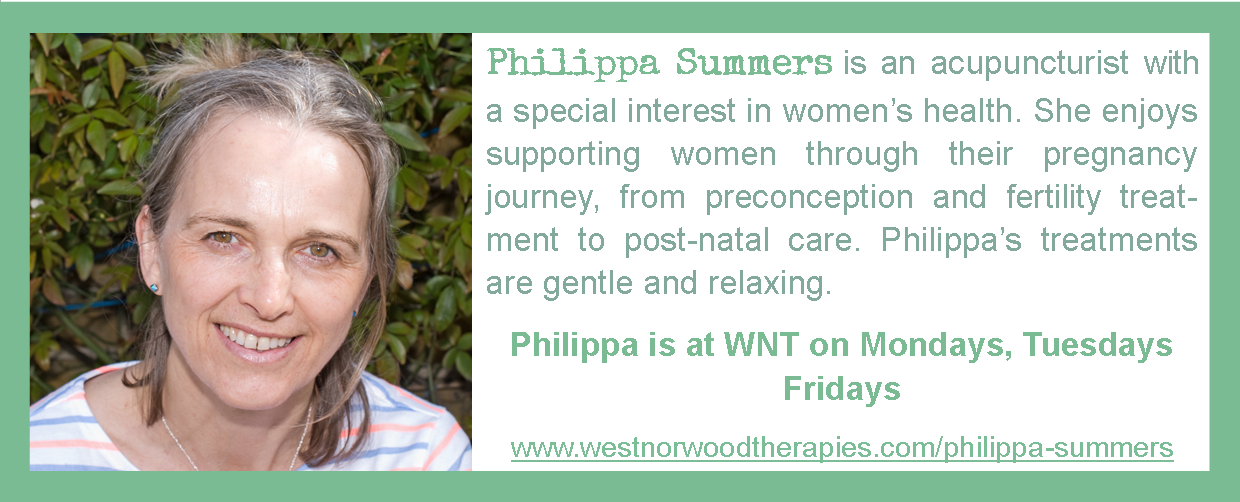
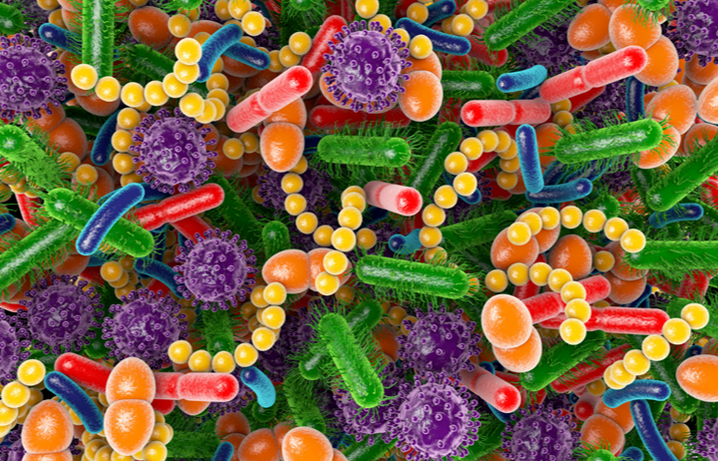
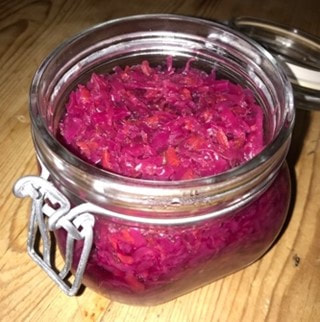

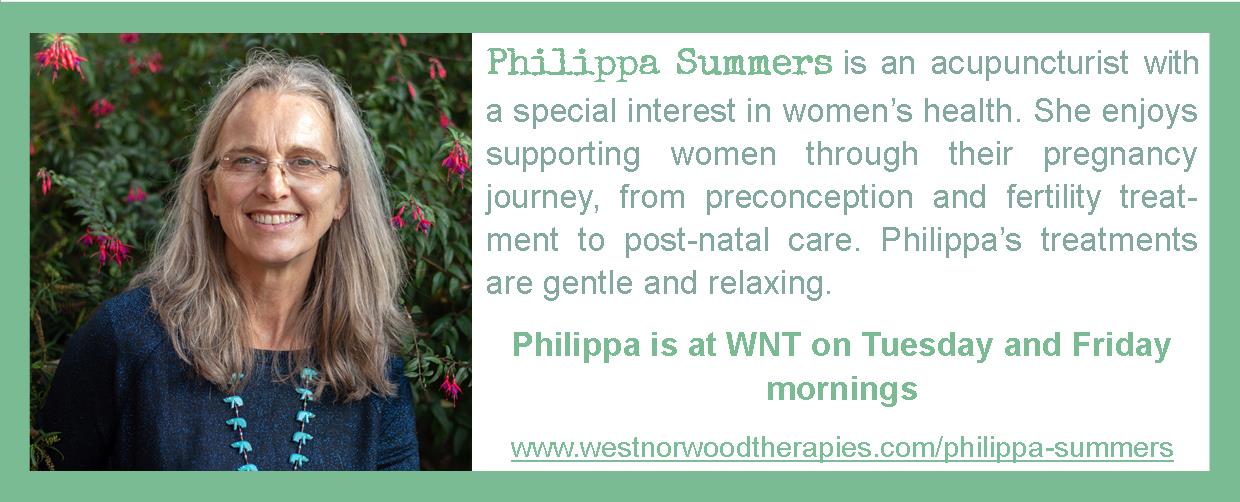

 RSS Feed
RSS Feed
